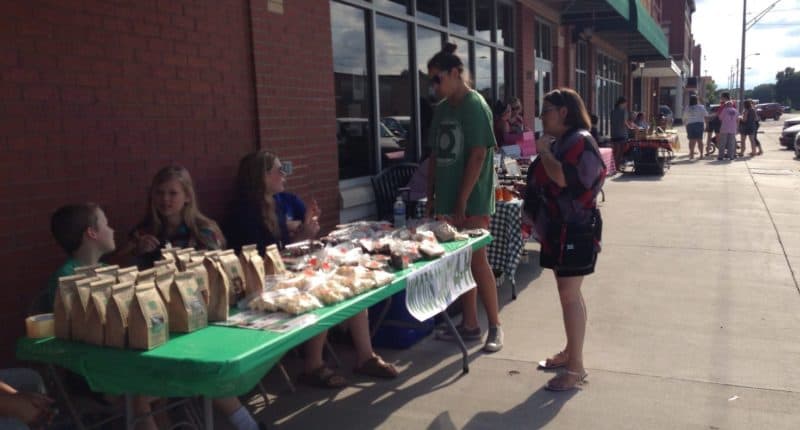
The culture of Alva, Oklahoma, comes from the people who live here influenced by the characteristics of this place. Photo by Becky McCray
Lots of small towns have a good handle on the importance of the arts. Some have arts councils and arts festivals, and most are starting to better value rural artists. What about the larger concept of culture? Culture is usually only mentioned around urban areas. Rural is almost thought of as the opposite of “cultured.”
One definition I’ve heard of art is how people make meaning for themselves. That’s pretty good, I think. People create things that make meaning out of their lives and surroundings. Culture includes that and more.
Culture is the intersection of people and place.
When a particular group of people live in a particular place, they create ways of doing things that are their culture: Finding, growing and preparing food; making music; designing buildings; decorating themselves and their clothing; furnishing their surroundings; doing business with each other and surviving the weather. All of these elements of culture exist in rural places.
People living in a place developed a culture that drew from the characteristics of the place itself to create new ways that make life better, easier, richer. When new people arrive, they bring their culture with them, and they interact with the local culture and the place, enriching the mix. When people of different cultures meet in a place, each is influenced by that place and by each other.

Ollie Star, Becky McCray and Debra West discussed the importance of culture and place at the Oklahoma Arts Council Conference in Ardmore in 2013. The Pocahontas Cherokee Women’s Club has been the keeper of their culture for more than 100 years.
Culture is not about preserving a static version of our past ways only for tradition. Culture is a reservoir of shared experiences, a toolkit that equips us to thrive and adapt.
Culture helps us prosper in the future. We bring forward our ways that define us and our place even as we adapt, adopt new ways or even move to a new place.
This is the real reason we teach our culture to our children. It’s not just folk songs or crafts, it’s people, places and our special ways. These are important because they connect us to the past and the future and to this place where we are now.
New to SmallBizSurvival.com? Take the Guided Tour. Like what you see? Get our updates.











I like that way of looking at it. It makes me brissle when my friends in urban areas assume we don’t have “culture” in the country. It isn’t the same. But that doesn’t mean it isn’t valid.
Absolutely, Renia! It reminds me of this quote from Gene Logsdon:
“Why does no one speak of the cultural advantages of the country? For example, is a well groomed, ecologically kept, sustainably fertile farm any less cultural, any less artful, than paintings of fat angels on church ceilings?”